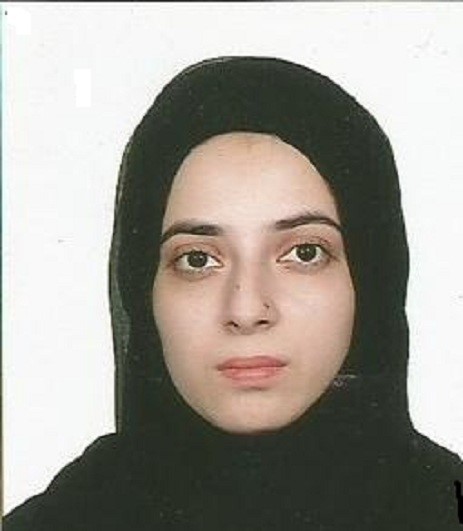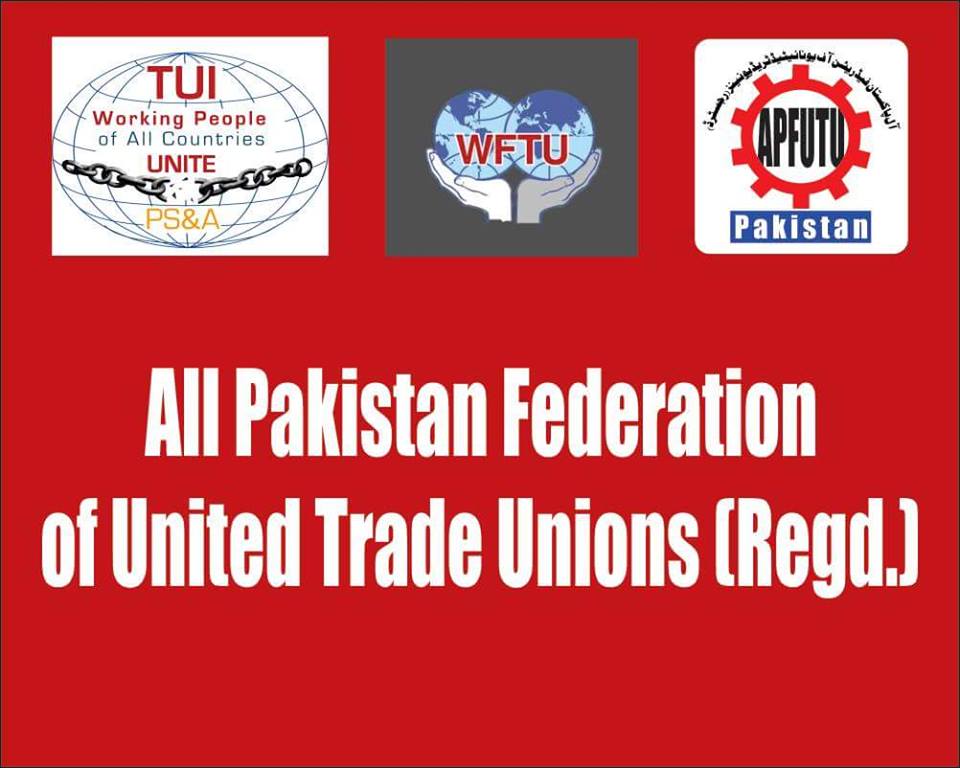This is an article written by Mrs Hifza Hammad, the Assistant General Secretary of APFUTU, UITBB’s member in Pakistan, on the atrocities perpetrated against women in the brick kiln industry in Pakistan.
In the name of Islam, Pakistan was created on 14th August 1947. But, with great sorrow, it is pointed out that the principals of Islam cannot be completely seen in Pakistan.
Ιn Pakistan, after 70 years of independence, women are facing substantial, systematic challenges, the most fundamental of which is the question of exploitation and violence against them. There is very fragmented legal framework for violence against women; there is also no proper mechanism for enforcing the law.
There is no doubt that Pakistan has some good legislation dating back to 1961 on family law but the state has always been very apologetic about that.
So many times, we see again and again that there is no serious commitment for Pakistan to implement good laws that are in place, because of the environment which has been created around the question of women rights. Women in Pakistan are demanding change and challenging their political, social and religious institutions.
Nothing has been done about it. If international community really wants to help these women, it should not be defensive or apologetic for fear of offending religious or social traditions. If the international community is apologetic, it confuses the population and makes it harder for forces inside the country to send our message with clarity. The world`s economic forum “Global Gender Gap” report places Pakistan as the second lowest performing country in the world. In rural areas of the country, instances of violence against women in the form of so-called honor killing, child marriages, acid attacks, domestic and sexual abuses, are frequent. These crimes are grossly underreported and justice is difficult due to structural efforts such as the lack of independence of women. There is a corrupt justice system and there is no social support for women. In this environment, progressive laws enacted to protect women against violence have been largely ineffective.
According to a 2013 report, 56 women were murdered solely for giving birth to girls. This is indicative of the deep disdain held for women by a large part of society. 150 women were burnt in acid attacks, incidents of gas leakage and stove burning. 389 incidents of domestic violence were reported in the media. According to Police statistics, during 2013 alone, there were 76 cases of raped women. In 2014, 105 rape cases were registered as well as 34 gang rapes. In 2015, 144 rape cases and 35 gang rapes were registered. Most of the nominate cities are Mandi Baha Ud Din, Rehimyar Khan, Layyah, Bahawalnagar,Fasilabad, Shekhupura, Muzaffar Garh, Khanywal, Kasur and Chinniot Districts. Despite the fact that Lahore is the most developed city in the Punjab Province, it is exhibiting similar phenomena.
Many women are being exploited by the male-dominated society in Pakistan every year. One of the most important sector in the building material industry is the brick kiln industry. About 1.5 million men and women are employed in this industry as employees. They have been doing this job generation after generation. Especially female employees are facing physical torture and sexual harassment. If any of the male members manages to escape the kiln, the owners direct their vengeance towards the women. There is no law for their protection. Female kiln workers are threatened with grave consequences if they demand a raise in return for their labour. The brick kiln worker can seek loans from the bosses but they cannot pay back this loan because of their meager earnings and the high interest rates imposed on them. Young girls work as a “pathair”, or an unbaked brick maker, to help their parents who work in the baking of bricks.
Moreover, the girls accompany their families to the workplace at 6 o’ clock in the morning and they work all day, ending late at night. During summer, it becomes hard to sustain the heat and work pressure. Often, their hands are burnt while carrying baked bricks. It is a daily routine in Pakistan, where the International Labour Organisation (ILO) estimates that over 12 million children work as child labour. Now, the Government of Punjab province has imposed a ban while it has also passed a bill titled Child Labour Elimination in the Brick Kiln Industry 2016, from the Punjab Province Assembly.
Our labour representative organization, All Pakistan Federation of United Trade Unions (APFUTU) stress that “This kind of work leads to many injustices in a sector that makes extensive use of bonded labour”. Brick Kilns are nothing more than dungeons for workers where burns, servitude and discriminations prevail. The brick kiln workers are not allowed to register with social welfare and the labour department, nor are they entitled to old age benefits and social security. Female workers have virtually no rights as most of them do not even have a national identity card, which is a basic document to prove a person’s existence in government records.
According to the United Nation Development Programs, 21 per cent of Pakistan`s total population of 180 million people live below the poverty line. Female bonded labourers are trapped into a perpetual cycle of death that is often passed on from generation to generation. Many kiln employers provide loans to workers who are then unable to repay and have no choice, but to work as slaves, which is a practice that is widespread despite being outlawed in 1992. Most brick kiln workers live at the kiln factories, in cramped rooms, sharing basic amenities such as water supply.
Cases of sexual violence against women and children are common. Most of the female workers who work at kiln are not paid any wages. Women face serious hardships, they work for free and their work never ends, as they are supposed to perform all household chores as well. The female workers contract many illnesses caused by the difficulty of the tasks they perform throughout their lives.
The All Pakistan Federation of United Trade Unions (APFUTU) are urging the country`s brick kilns industry to change the pay system, so that women labourers are paid directly, instead of their wages going to the male heads of their family. All Pakistan Federation of United Trade Unions (APFUTU) underlines that thousands of women are producing bricks in Pakistan and they are not being paid directly, while the industry has no record of these workers.
The atmosphere is very tough, but female workers cannot stop working. There are many women who get beaten by their husbands whenever they demand money, but are unable to leave their husbands and family, because this is considered unethical and shameful for their parents. So, there is no choice but to keep on working within such a reality.
Pakistan is not unique in the world for having a domestic violence problem, but the types of violence may differ. Violence is not just physical. It takes on different forms, like when a woman is not allowed to study or go to college despite being a good student, or if there is control over a woman to the extent that she cannot even go to Bazaar because her husband is away at the time. There is also the thorny issue of inheritance violence, which too often requires that a female family member sacrifice her life and happiness in order to secure inheritance.
Sometimes, feuds are settled by offering a daughter or a sister in marriage. The concept of marrying of a female family member to an inanimate object or an animal, is too often applied to insure that the inheritance will never be lost. There is a case in Bahawalpur where a woman was married off to a pigeon, just to save the inheritance. I mean, what kind of Islam is that? Islam teaches to Muslims that mothers, sisters and daughters are entitled to a share from the inheritance. In Pakistan, Muslim women don’t ask for any rights outside the Holy Quran. So, if Almighty Allah says in the Quran that the daughter gets half of the inheritance, we say that at least she should be given that.
The All Pakistan Federation of United Trade unions (APFUTU) are fighting against such phenomena since 1992, although they are facing many hardships and hurdles along the way, such as rigid communities and some other sectors, which do not want to see Pakistan progressing. Moreover, APFUTU Unions are facing lack of funds as there are no donors, organisations, political parties or Governments which will help APFUTU in this noble cause. APFUTU will continue working on such issues using whatever little resources are available, even though we fear that we may not be able to continue the fight in the future. Yet, we are determined to solve such problems in Pakistan.
It is our national duty as well as the duty of international organisations to join their hands with us for this noble cause.




